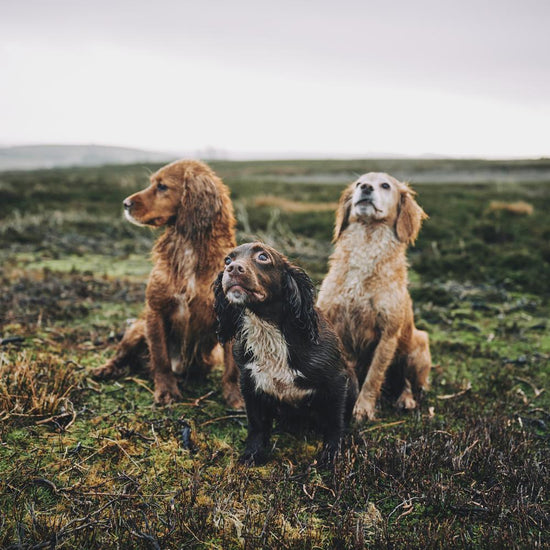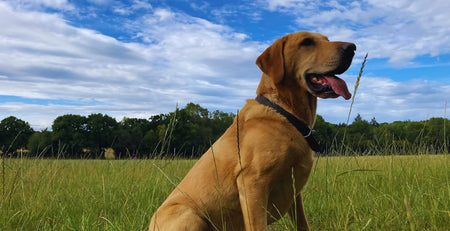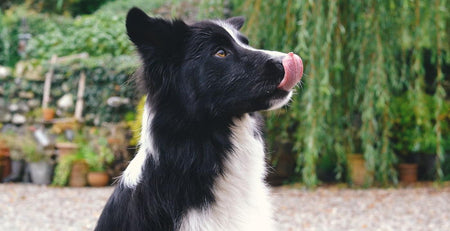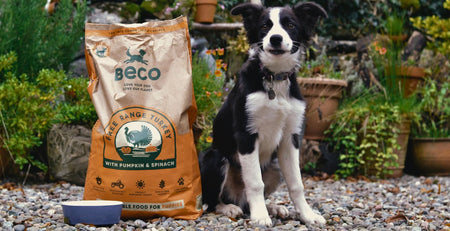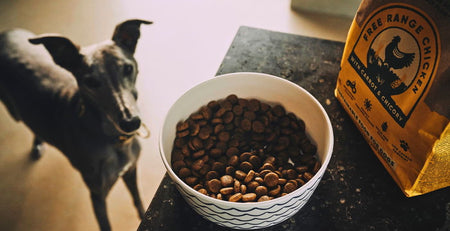As much as we all love our dogs, and taking them out for walks in the park, there’s a less glamorous side, too. The poop. For those that always pick up after their dog, thank you. You go a long way to protecting public health, while keeping our parks, pavements and paths clean.
Once you’ve scooped up your dog’s poop, it can sometimes be a case of ‘what next’? It’s a question we hear a lot, from both accustomed and first-time dog owners. Luckily, we’re here to clear things up (no pun intended) in this post.
Short on Time? Here’s What You Need to Know
-
Biodegradable dog poop bags still don’t usually break down in landfill conditions, so don’t be immediately fooled by the eco-sounding title.
-
So, if you do dispose of your dog poop in a normal waste or park bin, then dog poop bags made from recycled plastic are best. That way, you’re not using any virgin plastic.
-
Better still, if you’re able, use compostable dog poop bags and compost at home. This way, your dog poop bags will break down, and you’ll be able to use your dog poop to good effect in helping fertilise your non-edible plants.

Don't Forget Your Dog Poop Bags
Before embarking on your adventure with your dog, make sure you’re equipped for the task ahead. Lead? Check. Ball? Check. And, the most important of all, poop bags? Check. These bags are a must-have on any walk with your dog; without them, you could find yourself in some sticky situations.
Compostable dog poop bags are a great choice if you have a garden at home. They’re robust, easy to carry, and match the strength and versatility of regular plastic bags. What’s more, and as we’ll shortly come onto, compostable dog poop bags break down when placed in well-managed compost piles, and contribute to making fertiliser that can be used on non-edible plants.
Composting

Composting is a great way to dispose of your dog’s poop, as long as you get it right. Once you’ve picked up after your dog and bagged it up, you can dispose of it at home, or at an industrial composting facility; make sure you check the facility accepts animal waste, beforehand.
At home, you can get rid of your dog’s poop by creating your own compost pile. Organic waste needs the right level of oxygen, heat and water to fully decompose, so it’s important you keep your compost pile warm and moist. Sawdust is also a great addition to combat the high levels of nitrogen contained in our pups’ poop.
When you reach the perfect balance of warmth and moisture, all the nasty pathogens are eventually killed off. Your compost is then ready to use on non-edible plants.
Bins
Once you’ve cleaned up your dog’s poop, depositing the poop bag in a bin is commendable, and it’s always been an important part of keeping our communities clean. Admittedly, in some areas, these bins aren’t as easy to come by. Poop bags are strong and sturdy, so you don’t have to worry about them splitting as you carry them to the nearest bin.
What Bin Does Dog Poo Go in?
Until recently, dog waste had to be separated from general waste, which is why, when you’re out and about, you may see separate dog poo bins. It’s now perfectly acceptable to use any general litter bin to dispose of your dog’s poop, but if you can’t find one, then do take it home with you. At home, it should be placed in the general domestic waste bin, and not the food or garden bin.
If you find yourself deep in the countryside or some woodland, with no bins in sight, knowing what to do with your dog’s poop can be tricky. Some people suggest a ‘stick and flick’ policy. In our experience, however, we advise you to always bag, pocket and either bin or compost when you can.
A Note on Biodegradable Dog Poop Bags
It’s important to add a quick note on biodegradable dog poop bags, here. Unfortunately, when you bin your dog poop bags, they get taken to a landfill. And whilst the term ‘biodegradable’ sounds more eco-friendly – and indeed, in the right conditions, it is more eco-friendly – landfills don’t provide the conditions needed for biodegrading.
Biodegradation requires aerobic conditions (presence of oxygen) whilst landfill conditions are anaerobic (lacking in oxygen). So, if you’re unable to compost and you’re going to bin your dog poop, then we’d suggest using dog poop bags made from recycled plastic. These bags have a far lower carbon footprint than virgin plastic (86% lower, in fact).
Taking a Look at Other Alternatives (and Non-Alternatives)
Worm Farming (Do)
Whilst this choice of dog waste disposal might not be as common as compost or dog poop bins, it’s still a great way to get rid of your dog’s mess. Believe it or not, worms are quite happy to eat a lot of things we don’t want. These include potato peelings, apple cores and, of course, animal waste. Worms eat the waste and eliminate all odours.
After the worms have done their bit, you can then use it as the ideal fertiliser for non-edible plant beds. Australian company, Wormtec, advises that you provide a high carbon content alongside food and animal waste. Things like newspapers and leaves are a great way to, again, combat the high level of nitrogen. This is a great way to use up other forms of waste, and not just your dog poop.
Flushing (Don’t)
Poop and toilets go hand-in-hand, right? With dogs, it’s not that simple, and we certainly don’t recommend flushing poop bags down the loo. A number of water companies have come out and advised people against flushing dog waste down their toilet.
Can You Burn Dog Poop? (Don’t)
Burning your dog’s waste may be regarded as a statutory nuisance due to odour and toxicity and should be avoided. Smoke is an air pollutant, so from an environmental perspective, one of the greener methods – such as composting – is a far better and healthier solution to disposing of your dog’s poop responsibly
The Future of Dog Poop Disposal
These are the more conventional ways to get rid of dog poop, but, as with all things, innovation is changing convention. While compost piles and worm farms are relatively new ways to dispose of dog poop bags, there’s one invention that we really like the look of.
In 2018, retired engineer, Brian Harper, revealed his latest invention: dog-poo powered biogas street lamps. On a popular trail in the Malvern Hills, dog walkers can use free paper dog poop bags that, when put in a bin, feed into a bio-digester. Microbes in the anaerobic digester produce methane, which is then stored and used to power street lamps that come on at dusk.
It’s fantastic to see these types of inventions come to life, and we hope to see plenty more in the future. In our eyes, waste doesn’t have to be wasted.
Final Thoughts on the Best Way to Dispose of Dog Poop
As you can see, there are plenty of ways to dispose of your dog’s poop. Of course, you’ll find some options are more suitable than others – it all depends on you and your dog. One thing is for sure, picking up dog poop should be celebrated, just don’t leave it on the pavement or hanging in a tree, and definitely don’t flush it down the loo or burn it.
So, to all the dog owners out there, used to bending down and getting hands on, and the fantastic local facilities who put up with a whole lot of poop, we say thank you. The streets wouldn’t be the same without your help.

Now you know where to dispose of dog poop in the UK, it’s time to get picking. View our comprehensive range of dog poop bags and dispensers, today.



